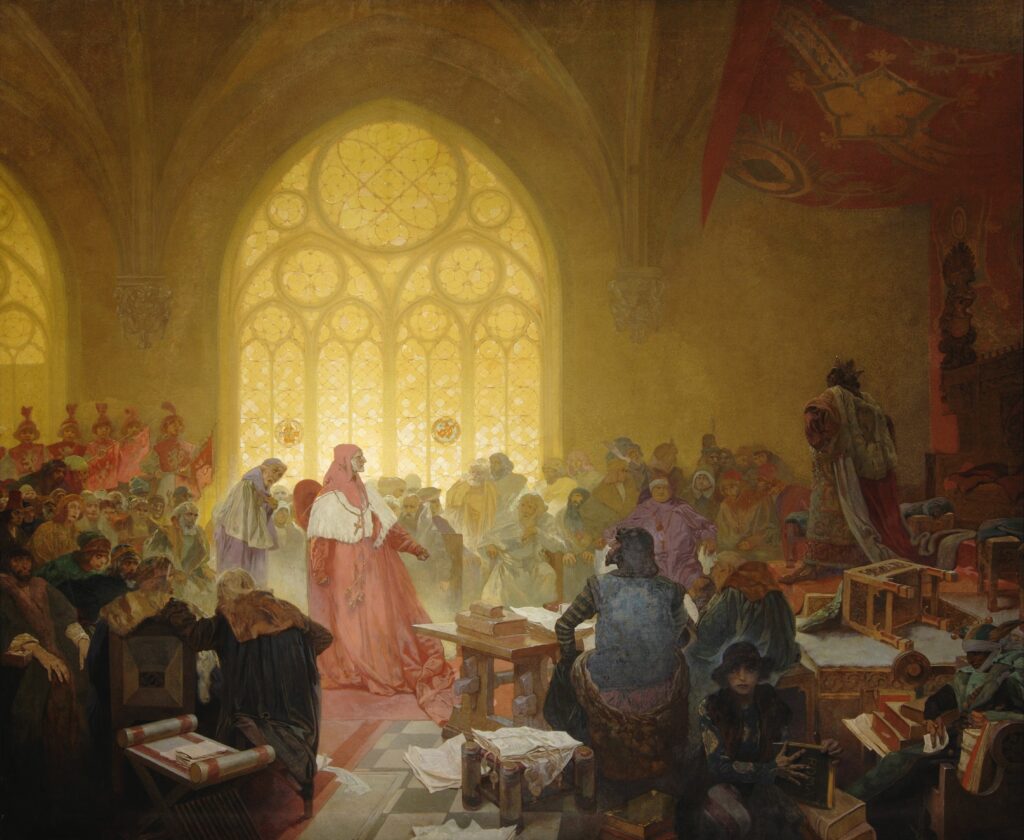The way of acting, straightforwardness and principle of Jiří of Poděbrady (1458-1471) - the king of both people, is depicted by Alfons Mucha in one of the episodes of his reign.
Pope Pius II received unkindly in Rome George's message led by Zdeněk Kostka of Postupice and Prokop of Rabštejn. On the third of April 1462, the messengers returned to Prague and with them came Fantinus de Valle, the permanent envoy of the Kingdom of Bohemia to the Vatican. He presents the Pope's demand that King George, his family and the entire nation renounce Hussitism and his decision to no longer recognise the validity of the Basel Compacts, which governed relations between the Hussites and the Catholic Church. The King receives the envoys from Rome at the Royal Court in Prague's Old Town during the Provincial Assembly. His reaction to the Pope's request is very impetuous. He rises from his seat so violently that the chair falls and replies that "...I do not recognize the Pope as judge of my conscience, my family, or my nation." The papal messengers stand, they were not offered a chair because the Czech messengers also had to stand before the Pope in Rome. The dismay at the King's sharp reply is evident in the faces of the papal legate's entourage, the pride in the attitudes and expressions of the Bohemian nobility. By the five-leaved rose on his back we recognize the lord of Rožmberk, a member of the royal council and ruler of southern Bohemia. Opposite him sits Archbishop Jan Rokycana with a cross on his purple robe. In the right corner is a figure with a fool's cap, a wise and learned man who renounced all privileges to advise the king - Brother Paleček, the most famous jester in Czech history. To the left of him is the boy who resolutely closed the book with the inscription Roma, thus Alfons Mucha symbolizes the end of all negotiations between the Pope and George of Poděbrady.
At the conclusion of this audience, the king dismisses all the papal envoys. The next day he summons Fantin de Valle and throws him into prison for treason and misrepresenting the interests of the Kingdom of Bohemia. The Pope responds by putting George under a curse, even stripping him of his royal crown. Upon hearing this news, George declares that he will die as King of Bohemia. This was in 1471 at the age of 51, at the height of his diplomatic and political power.
Vita App/gnews.cz-Jana Černá_07
https://mk-epopej-pruvodce.netlify.app/dospely/13



